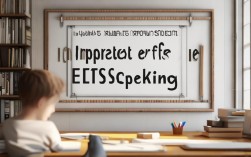- 核心词汇和短语:聊兴趣必备的“弹药库”。
- 万能句式和情景对话:从破冰到深入聊,手把手教你。
- 文化小贴士:中西方在聊兴趣时的一些小差异。
- 实战练习:给你一些题目,让你自己练练手。
Part 1: 核心词汇和短语
聊兴趣,首先要会用词,这里我们把词汇分分类,记忆起来更清晰。

A. 表达兴趣的动词和短语
- I'm into... (我热衷于...) - 最常用! 非常口语化。
例: I'm into photography. (我热衷于摄影。)
- I'm a big fan of... (我是...的忠实粉丝) - 表达强烈的喜爱。
例: I'm a big fan of sci-fi movies. (我是科幻片的忠实粉丝。)
- I really enjoy... (我真的很喜欢...) - 通用且礼貌。
例: I really enjoy listening to jazz music. (我真的很喜欢听爵士乐。)
- I love/hate... (我喜欢/讨厌...) - 最直接,但 "hate" 语气稍重,慎用。
- I'm passionate about... (我对...充满热情) - 比 "into" 程度更深,表示是“真爱”。
例: She's passionate about animal rights. (她对动物权利充满热情。)
- I'm keen on... (我特别喜欢...) - 英式英语中更常见,美式也能懂。
- It's my hobby. (这是我的爱好。)
- I'm a big enthusiast of... (我是...的狂热爱好者) - 比较正式一点的说法。
B. 常见的兴趣类别
- 艺术 & 音乐
- Painting/Drawing (画画)
- Playing an instrument (弹奏乐器), e.g., guitar (吉他), piano (钢琴)
- Singing (唱歌)
- Dancing (跳舞)
- Photography (摄影)
- Going to concerts/exhibitions (看演唱会/看展览)
- 运动 & 户外
- Working out / Going to the gym (健身)
- Running (跑步)
- Hiking (远足)
- Cycling (骑行)
- Swimming (游泳)
- Playing basketball/football/volleyball (打篮球/踢足球/打排球)
- Skiing/Snowboarding (滑雪/单板滑雪)
- Camping (露营)
- 智力 & 创意
- Reading (读书), especially fiction (小说), non-fiction (非小说), sci-fi (科幻)
- Writing (写作), e.g., stories (故事), poems (诗歌)
- Learning new things (学习新事物), e.g., a new language (新语言), coding (编程)
- Playing board games (玩桌游), e.g., chess (国际象棋), Go (围棋)
- Puzzles (解谜), e.g., Sudoku (数独), crosswords (填字游戏)
- 娱乐 & 社交
- Watching movies/TV series (看电影/电视剧)
- Binge-watching (刷剧) - 非常流行的词!
- Playing video games (玩电子游戏)
- Cooking/Baking (烹饪/烘焙)
- Gardening (园艺)
- Shopping (购物)
- Hanging out with friends (和朋友待在一起)
- Traveling (旅行)
C. 深入聊兴趣的词汇
- To get into sth. (开始对...产生兴趣)
例: I got into hiking last year. (我去年开始喜欢上远足。)
- To pick up a hobby (培养一个爱好)
例: I decided to pick up painting. (我决定开始学画画。)
- It's a great way to... (这是...的一个好方法)
例: Hiking is a great way to relieve stress. (远足是减压的好方法。)
- It helps me to... (它帮助我...)
例: Reading helps me to relax. (阅读能让我放松。)
- I'm hooked on... (我对...上瘾了/着迷了)
例: I'm completely hooked on this TV show. (我彻底迷上这部剧了。)
- It's a stress reliever. (它是我的解压神器。)
- It keeps me busy. (它让我有事可做。)
- I'm looking forward to... (我期待...)
例: I'm looking forward to the weekend because I can go hiking. (我期待周末,因为可以去远足了。)
Part 2: 万能句式和情景对话
初次见面,破冰 (Small Talk)
这是最常见的场景,目的是找到共同话题。
A: "Hey, what do you like to do in your free time?" (嘿,你空闲时间喜欢做什么?)
B: "Oh, you know, the usual stuff. I'm pretty into hiking. How about you?" (哦,你知道的,一些常规活动,我挺喜欢远足的,你呢?)
A: "Hiking, that's cool! I've always wanted to get into it. What do you enjoy about it?" (远足啊,挺酷的!我一直都想尝试,你喜欢它什么地方?)
B: "I just love being outdoors and getting some exercise. It's a great way to clear my head after a long week. Plus, the scenery here is amazing." (我就是喜欢户外活动和锻炼,这是漫长一周后放松大脑的好方法,这里的风景美极了。)
A: "That sounds perfect. I might have to give it a try sometime." (听起来太棒了,改天我可能也得试试。)
要点:
- 用 "You know, the usual stuff" 来回答,显得不那么有压力。
- 用 "That's cool!" "I've always wanted to..." 来表示兴趣和认同。
- 用 "What do you enjoy about it?" 来引导对方多说一点。
和朋友聊得更深入
A: "I've noticed you're always reading. What kind of books are you into?" (我注意到你总是在看书,你喜欢看哪种类型的书?)
B: "Oh, I mostly read fantasy and sci-fi. I'm a huge fan of authors like Brandon Sanderson. I just finished his latest book and I'm hooked!" (哦,我主要看奇幻和科幻,我是像布兰登·桑德森这样的作者的忠实粉丝,我刚读完他的新书,彻底迷上了!)
A: "Nice! I've heard of him. I'm more of a non-fiction person myself. I enjoy learning about history and psychology." (不错!我听说过他,我本人更喜欢非虚构类书籍,我喜欢了解历史和心理学。)
B: "That's interesting! What got you into non-fiction?" (有意思!你是怎么开始喜欢看非虚构类书籍的?)
A: "Well, I think it started with a book about ancient Rome. I found it so fascinating that I just wanted to read more. It's a great way to learn new things." (嗯,我想是从一本关于古罗马的书开始的,我发现它太迷人了,就想读更多,这是学习新事物的好方法。)
要点:
- 用 "I've noticed..." 来开启一个更私人的话题。
- 分享具体细节,比如作者、书名,会让对话更生动。
- 用 "I'm more of a..." 来表达自己的偏好,并自然地过渡到自己的兴趣。
- 用 "What got you into...?" 来询问对方兴趣的起源,是个很好的问题。
Part 3: 文化小贴士
-
“爱好” vs “热情” (Hobby vs. Passion)
- 在英语文化中,人们很喜欢用 passion (热情) 这个词,说 "I'm passionate about..." 会显得你这个人很有追求、很有活力,而不仅仅是“有空的时候玩玩”。
- 一个程序员说 "My hobby is coding",听起来有点平淡,但如果他说 "My passion is coding",给人的感觉完全不同。
-
聊兴趣是社交的“安全区”
- 聊天时,直接问 "What's your job?" (你做什么工作?) 有时可能有点直接,甚至涉及隐私。
- 而聊 "What are you into?" (你喜欢什么?) 则是一个更轻松、更安全的话题,几乎适用于任何场合,能快速拉近距离。
-
开放的心态很重要
当别人分享一个你完全不了解的兴趣时,











